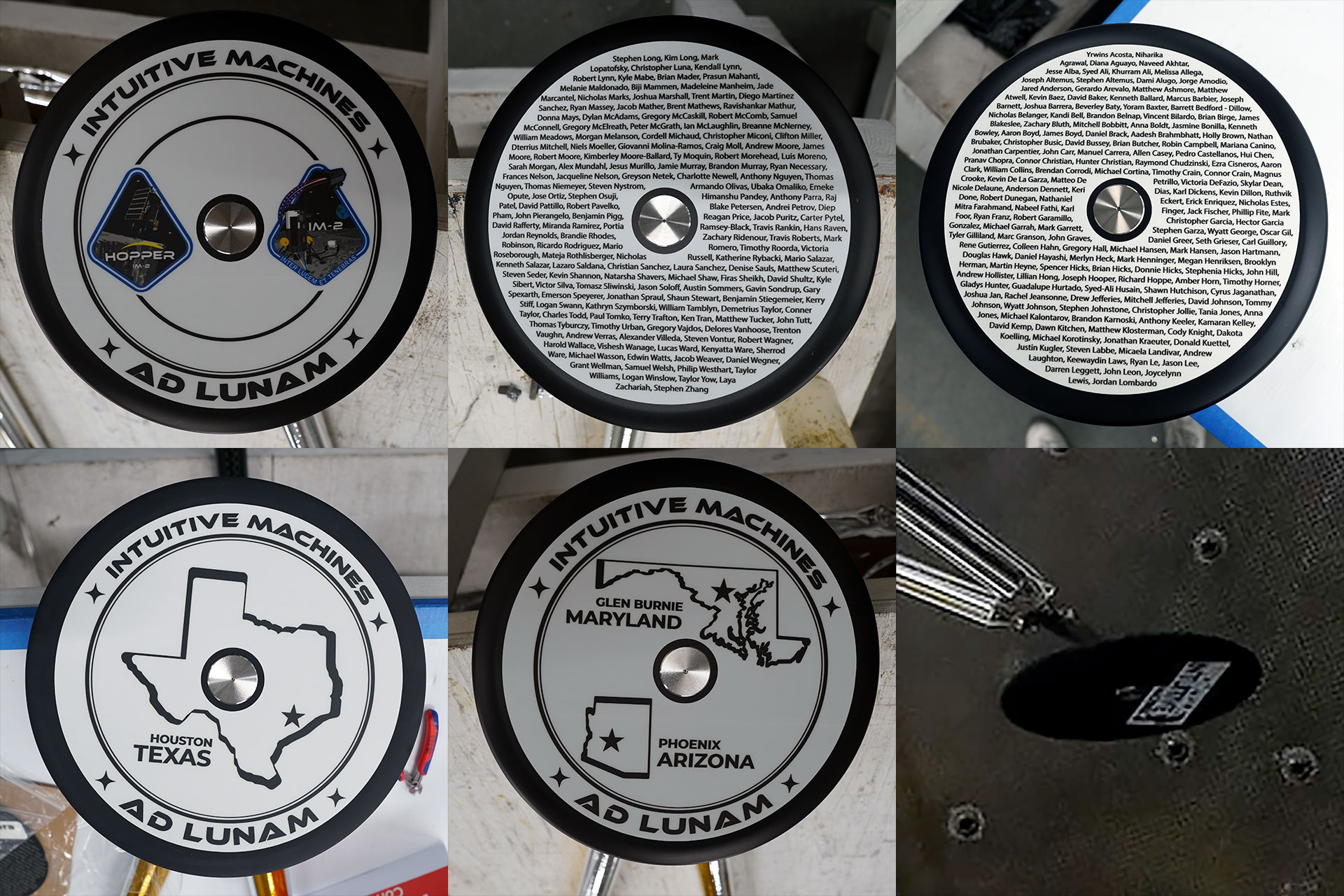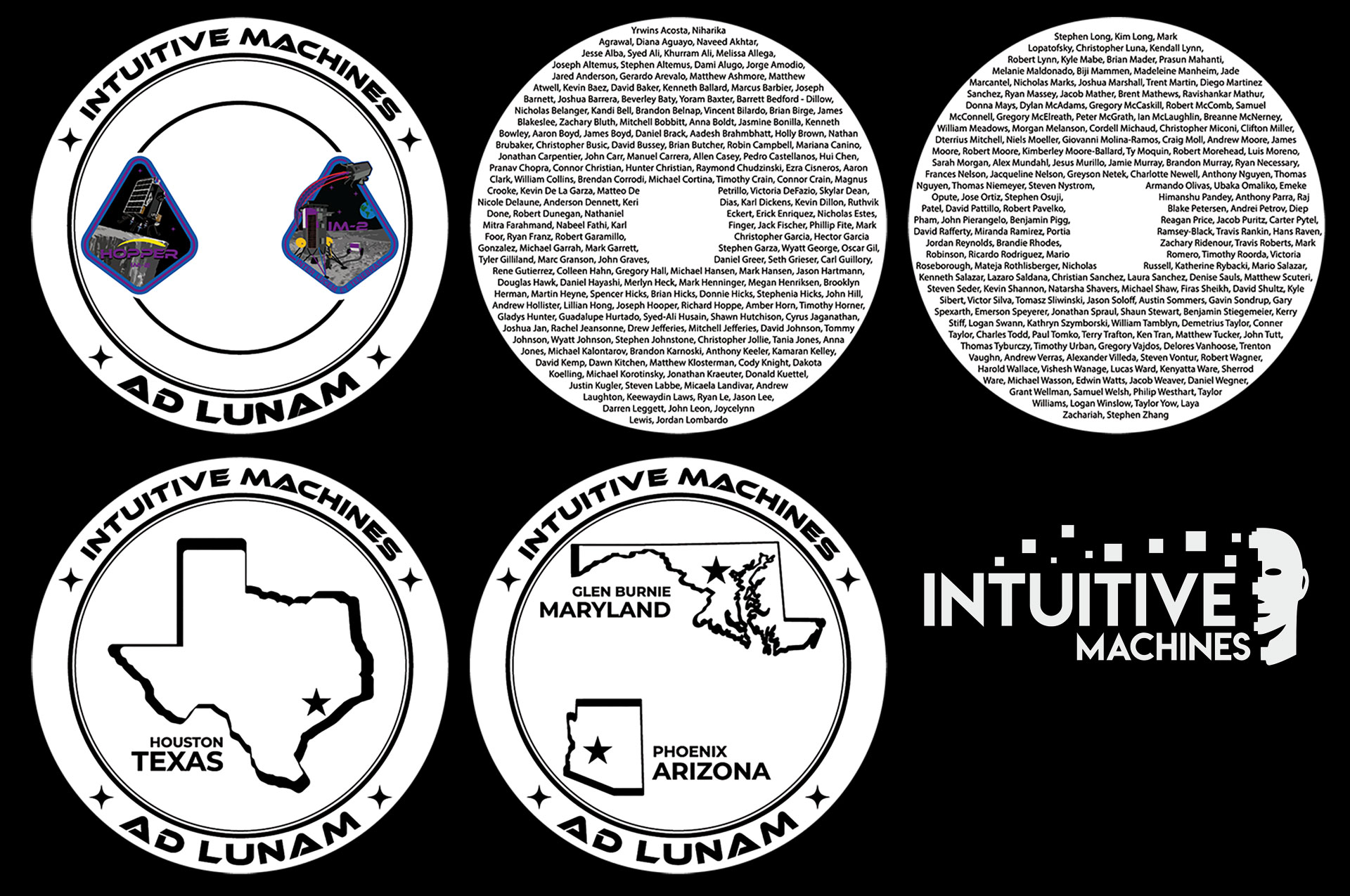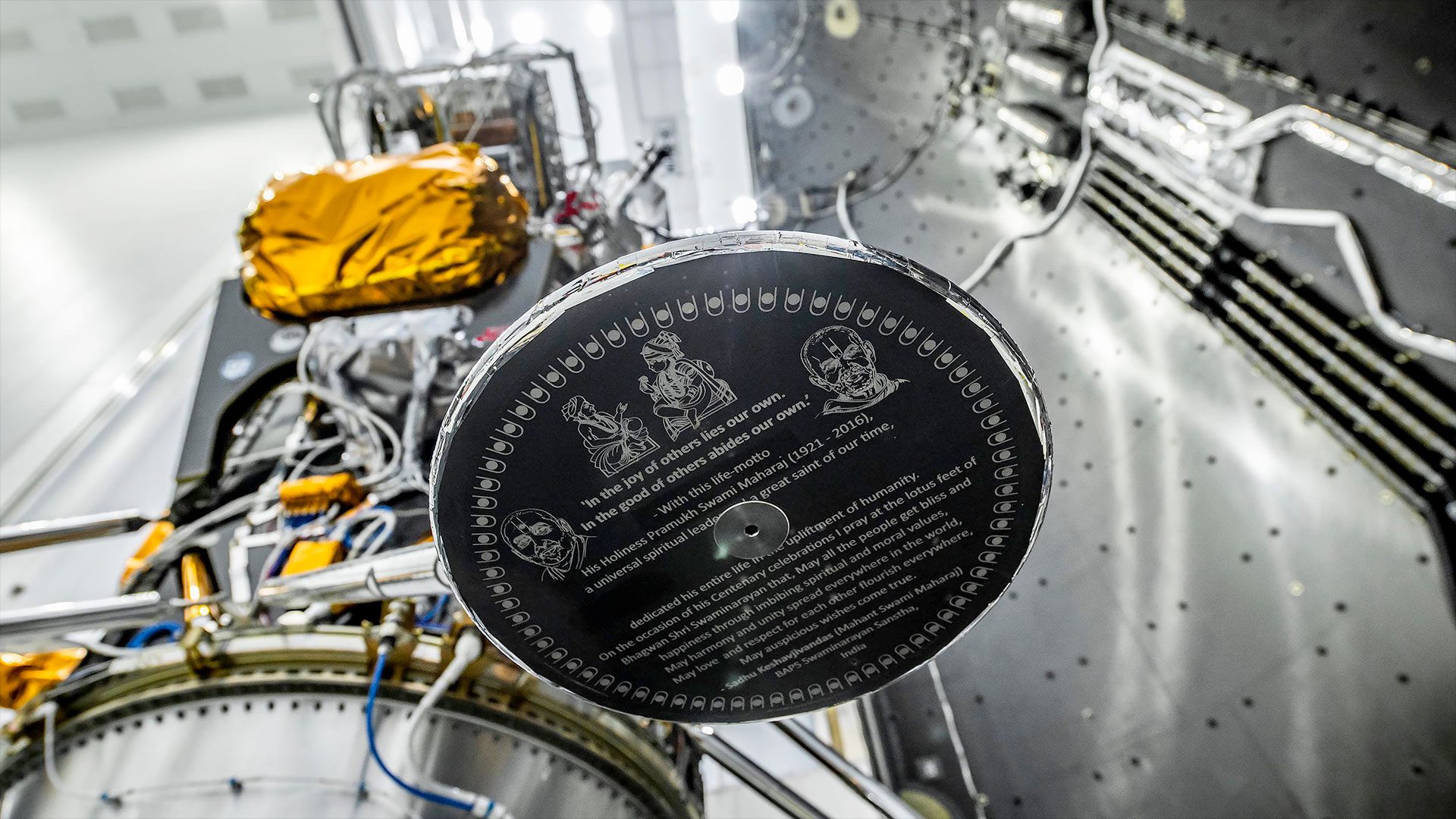Newly released photos of the next spacecraft to launch to the moon have revealed a detail that the U.S. company behind it really hopes will soon never be seen again.
Intuitive Machines on Thursday (Feb. 20) shared images of its second Nova-C lunar lander, “Athena,” as it was being encapsulated within a protective fairing for its liftoff to deliver NASA and commercial payloads to the moon’s surface. The photos show the 14-foot-tall (4.3-meter) probe from just below its launch mount, such that the bottoms of some of its six legs’ footpads are in view.
Should all go to plan, those footers — which each have a different design on their base — will be hidden when Athena lands at Mons Mouton, a lunar highland located about 100 miles (160 kilometers) from the moon’s south pole, as soon as a week after leaving Earth.
Liftoff of the IM-2 mission atop a SpaceX Falcon 9 rocket from NASA’s Kennedy Space Center in Florida is targeted for no earlier than Wednesday (Feb. 26).
“The first time, I put all the names of the people [who worked on the mission], and then I had that tribute to the Swami from a Hindu religion,” said Steve Altemus, president and CEO of Intuitive Machines, in an interview with collectSPACE.com. He was referring to an etching that honored the life and service of Pramukh Swami Maharaj, a spiritual leader who championed the human value of selfless service.
“That co-opted a whole country, India, to support us, and that was really nice,” said Altemus.
Related: Intuitive Machines lands on moon in nail-biting descent of private Odysseus lander, a 1st for US since 1972
The IM-1 lander, “Odysseus,” became the first commercial spacecraft to achieve a soft landing on the moon on Feb. 22, 2024, and marked the United States’ first return to the lunar surface since the Apollo 17 mission in 1972. During its descent, however, a disabled navigation system resulted in Odysseus losing at least one of its six legs and coming to rest at a 30-degree angle. Still, communications with Earth were established, and the IM-1 science payloads collected data, leading Intuitive Machines to declare the landing a success.
With its second mission, the Houston-based company believes Athena will be just as successful as Odysseus and plant all six of its footpads on the lunar surface.
“The primary things we fixed on Athena, versus Odysseus, was to ensure that we can stick the landing, this time upright,” Tim Crain, Intuitive Machines’ chief growth and technology officer, told collectSPACE.
Ad Lunam
If Athena works as intended, then the designs imprinted on its footpads will be embedded in the lunar regolith (or soil). The photos released Thursday, then, may be the first and last time they will be visible to the public.
As with Odysseus on IM-1, two of Athena’s pads bear the names of everyone who works at Intuitive Machines.

Another of the footers displays the IM-2 mission patch and the insignia for the company’s Micro Nova Hopper, which is designed to move up to 1.25 miles (2.4 kilometers) away from the lander in a series of jumps. The hopper is named “Grace” after the pioneering mathematician and computer programmer Grace Hopper.
“Or grasshopper,” said Altemus with a laugh, making an appropriate pun using a softened pronunciation of Dr. Hopper’s first name.
The fourth pad displays the outline of the state of Texas, with a star noting the location of Houston and Intuitive Machines’ headquarters. Similarly, the fifth footer has the outlines of Maryland, with a star placed for Glen Burnie, and Arizona with a star over Phoenix. The earlier represents the location of the company’s robotics and mechanisms team, while the latter is home to NASA’s Lunar Reconnaissance Orbiter (LRO) and ShadowCam camera teams.
Three of the footpads are also inscribed “Ad Lunam,” the Latin phrase for “To the Moon.”
Related: Intuitive Machines’ Odysseus lander tipped over on the moon during ‘spicy’ lunar landing
Athena’s sixth footpad displays Intuitive Machines’ logo.

Beyond the bottom of its “shoes,” Athena is adorned with its mission patch and Intuitive Machines, NASA and Columbia Sportswear logos on its body. The latter is a nod to the brand’s proprietary insulating material again being used to protect the lander from the extreme temperatures of outer space.
Athena also bears U.S. and Texas flags, including an American flag silkscreened on fire-resistant Beta cloth that, like the one flown on IM-1, was originally intended to fly on a NASA Apollo mission.
“They gave us one and then they just gave us another one,” said Altemus. “They are not ours to have, but we fly them because it’s America, and it’s Apollo and it’s of historic significance.”
Follow collectSPACE.com on Facebook and on X at @collectSPACE. Copyright 2025 collectSPACE.com. All rights reserved.
Source link
Read More
thesportsocean
Read our previous article: Our 1st 3D weather map from a distant exoplanet
